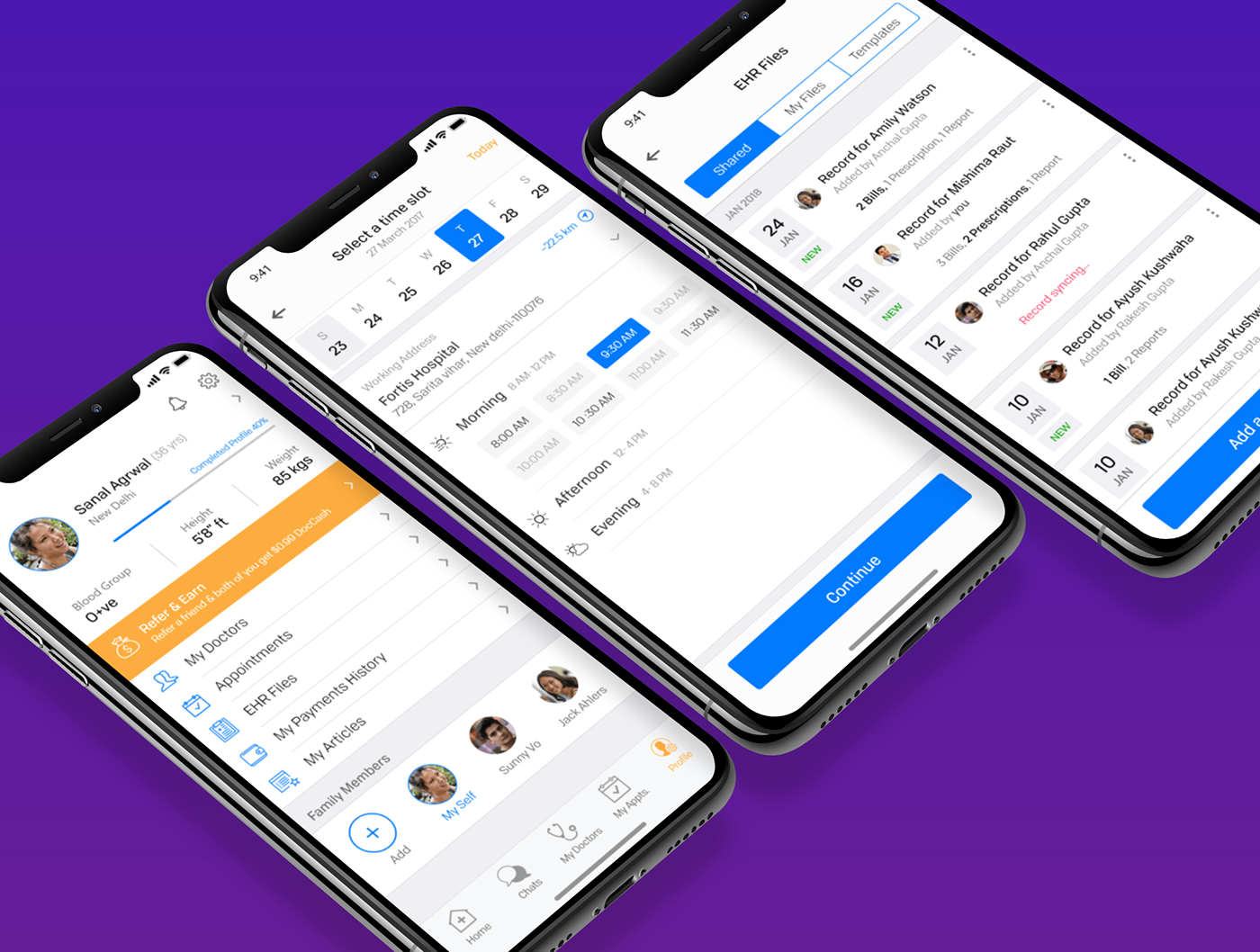The Benefits of Implementing a Mobile App for Clinics in Today's Healthcare
The Benefits of Implementing a Mobile App for Clinics in Today's Healthcare
Blog Article
The Future of Medical Care: Why Clinics Need a Mobile Application Today
As the medical care landscape continues to evolve, facilities encounter placing pressure to adjust to individual assumptions for greater comfort and ease of access. The assimilation of mobile applications can serve as a crucial method for enhancing client interaction and enhancing procedures.
Transforming Patient Expectations
As the landscape of healthcare evolves, individual assumptions are going through a significant change. Today's patients are increasingly looking for benefit, ease of access, and individualized care.
In addition, patients are becoming a lot more notified and encouraged, usually looking into problems and therapies online prior to examinations. This enhanced awareness is paired with a need for transparency in health care procedures, consisting of cost quotes and treatment choices. Consequently, carriers are compelled to adjust by embracing electronic devices that improve the patient experience.
The assumption for prompt and effective communication has actually never ever been higher, with several clients considering responsiveness a vital element of quality treatment. mobile app for clinics. In this developing landscape, health care organizations must recognize these changing assumptions and take advantage of mobile applications to promote a much more patient-centric strategy, making certain that they not only meet but surpass the standards set by today's enlightened customers
Enhancing Client Interaction

Mobile applications assist in interaction in between individuals and doctor, allowing real-time visit scheduling, suggestions for medication adherence, and straight messaging attributes. These capabilities not only improve ease yet additionally build a sense of responsibility among individuals. Moreover, mobile apps can supply academic web content customized to private demands, aiding clients better comprehend their conditions and therapy alternatives.
The integration of gamification components within healthcare apps can likewise encourage clients to participate in healthy and balanced behaviors, strengthening favorable lifestyle changes. By tracking progress and satisfying achievements, clients are most likely to remain dedicated to their health and wellness goals. Eventually, boosting patient engagement with mobile applications results in improved health end results, better person satisfaction, and a more collaborative healthcare experience. Facilities that prioritize this aspect will likely see a considerable impact on the high quality of treatment delivered.
Improving Facility Workflow
Simplifying clinic operations is vital for improving workflow efficiency and maximizing client care. The implementation of mobile applications can considerably lower management worries, permitting doctor to concentrate extra on client communications. By automating consultation scheduling, client check-ins, and payment procedures, centers can decrease go to the website wait times and improve overall operational efficiency.
Mobile apps additionally facilitate real-time accessibility to individual documents, making it possible for medical care specialists to make enlightened decisions rapidly. This immediacy not only enhances the high quality of care but additionally reduces the possibility of errors connected with misplaced or obsoleted information. Leveraging mobile innovation supports a more well organized approach to handling client my website follow-ups and treatment plans, guaranteeing that no important actions are ignored.
This enables for prompt replenishment and helps avoid disturbances in person treatment due to equip shortages. By integrating these performances right into their day-to-day operations, clinics can produce an extra reliable and natural environment, ultimately leading to enhanced client results and fulfillment.
Improving Interaction Networks
Reliable communication is frequently mentioned as a foundation of quality health care distribution. In today's busy clinical environment, mobile applications can considerably enhance communication networks in between facilities, clients, and medical care carriers. By incorporating mobile applications right into their procedures, clinics can facilitate real-time communications, guaranteeing that clients obtain prompt information concerning their visits, examination results, and treatment plans.
Mobile apps also equip people to connect directly with their medical care teams with safe and secure messaging features. This direct line of communication promotes a feeling of engagement and enables instant information of problems, which can bring about better adherence to treatment procedures. In addition, press alerts can advise people of upcoming appointments or medication schedules, decreasing no-show rates and enhancing general health and wellness results.

Staying Competitive in Medical Care
In a rapidly advancing healthcare landscape, companies must prioritize technology and adaptability to preserve an affordable edge. The combination of mobile applications right into healthcare solutions is no more optional; it is vital for facilities aiming to improve individual engagement, improve procedures, and boost overall service delivery.
As individuals increasingly depend on electronic systems for wellness management, clinics that stop working to take on mobile innovation threat dropping behind. A properly designed mobile app can provide functions browse around here such as visit organizing, telemedicine consultations, and access to medical records, offering individuals with ease and cultivating commitment.

Competitors are also spending in mobile services, so remaining ahead requires continual improvement and remaining notified regarding technological improvements. Clinics must not only implement mobile applications yet also participate in normal updates and refinements. Inevitably, the effective integration of mobile modern technology will differentiate forward-thinking healthcare companies and set the criteria for patient-centric treatment in a digital globe.
Conclusion
In final thought, the combination of mobile applications in centers is necessary to resolve the advancing landscape of patient assumptions. Inevitably, the critical execution of mobile applications stands for a vital action towards providing customized and available healthcare, thereby meeting the demands of today's equipped clients.
Ultimately, enhancing person involvement with mobile applications leads to improved health end results, better individual fulfillment, and a more collaborative medical care experience.Mobile apps also promote real-time accessibility to client documents, allowing healthcare professionals to make educated decisions promptly. In today's hectic medical setting, mobile applications can substantially enhance interaction channels in between centers, people, and health care companies.Mobile apps likewise empower people to interact straight with their health care groups with secure messaging functions. Ultimately, the critical application of mobile applications represents a vital step towards supplying individualized and accessible health care, consequently satisfying the demands of today's empowered individuals.
Report this page